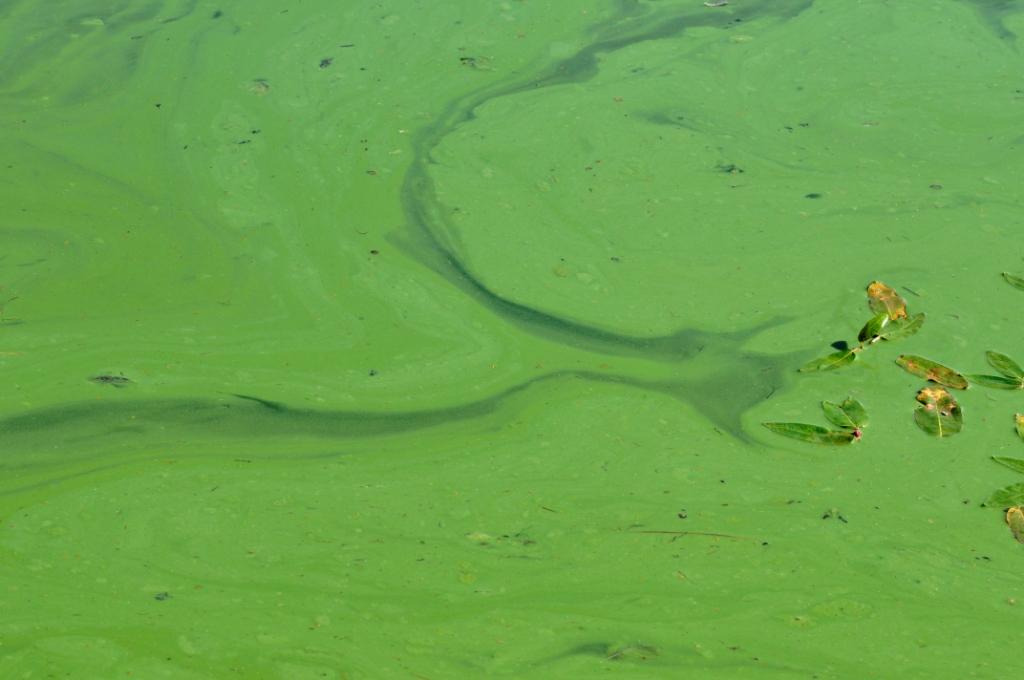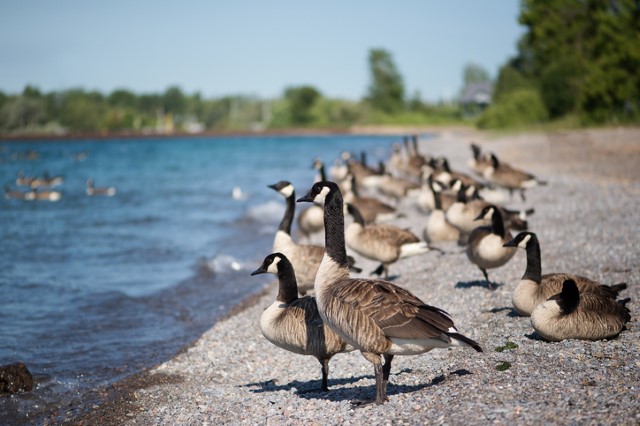Canada is home to the most lakes in the world, and we’re lucky to have these pockets of cool refreshment on hot summer days. Whether you’re a veteran boater, novice swimmer, sand-castle-maker or hiker who sends their dog in to cool off, there are a few things you should know about lake water before ‘diving in’.
#1: Long, hot summer days make a perfect environment for certain organisms to flourish

It’s usually in August and September that we see a blue-green algae bloom or two in our area. Despite looking interesting—or even beautiful—these blooms of microscopic organisms can produce toxins that have the potential to make people and pets sick. It might smell like freshly mown grass or rotting garbage, and make the water look blue-green, olive-green or red. Blue-green algae requires special precautions.
#2: The weather influences bacteria levels
You can expect higher bacterial contamination after:
- Heavy rain
- Wind high enough to create waves big enough to stir up sand and silt
#3: Waterfowl make water foul
Ok, not just waterfowl. Any birds, including seagulls, geese and ducks and their droppings can up the bacteria levels in a lake. Dead fish, algae/scum and other debris can have the same effect.

#4: Some lakes are more susceptible to contamination than others
- Busy, crowded beaches can lead to unhygienic conditions
- Shallow water (including sand that stays wet) heats up faster and makes it more likely to grow bacteria
Whether you see visible signs of less-than-optimal water quality or not, it’s a good idea to take certain steps while swimming or using lake water:
- Wash off after getting out of the water
- Wash hands or use hand sanitizer after going in the water or playing in the sand (and especially before eating)
- Don’t go in the water if you have an open sore or infection
- Don’t put your head underwater if you’re susceptible to eye, ear, nose or throat infections
- Keep your mouth and eyes shut when you swim
Whether you swim or float in it, ride a boat on it or just skip stones across it, we hope these tips will help you safely enjoy the rest of your summer.
